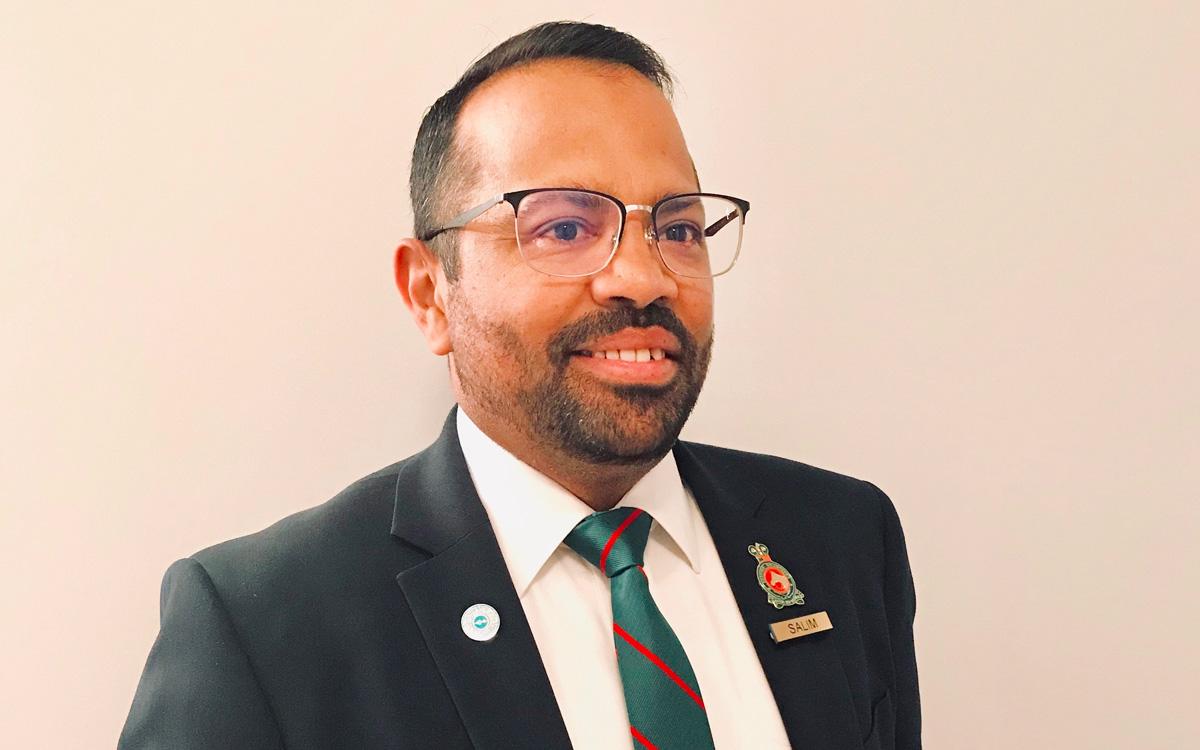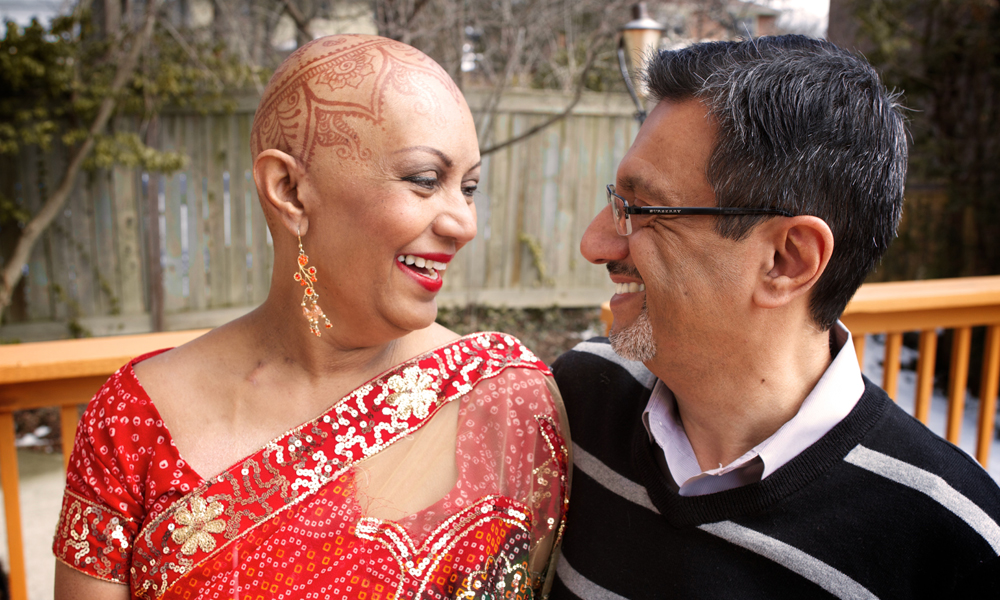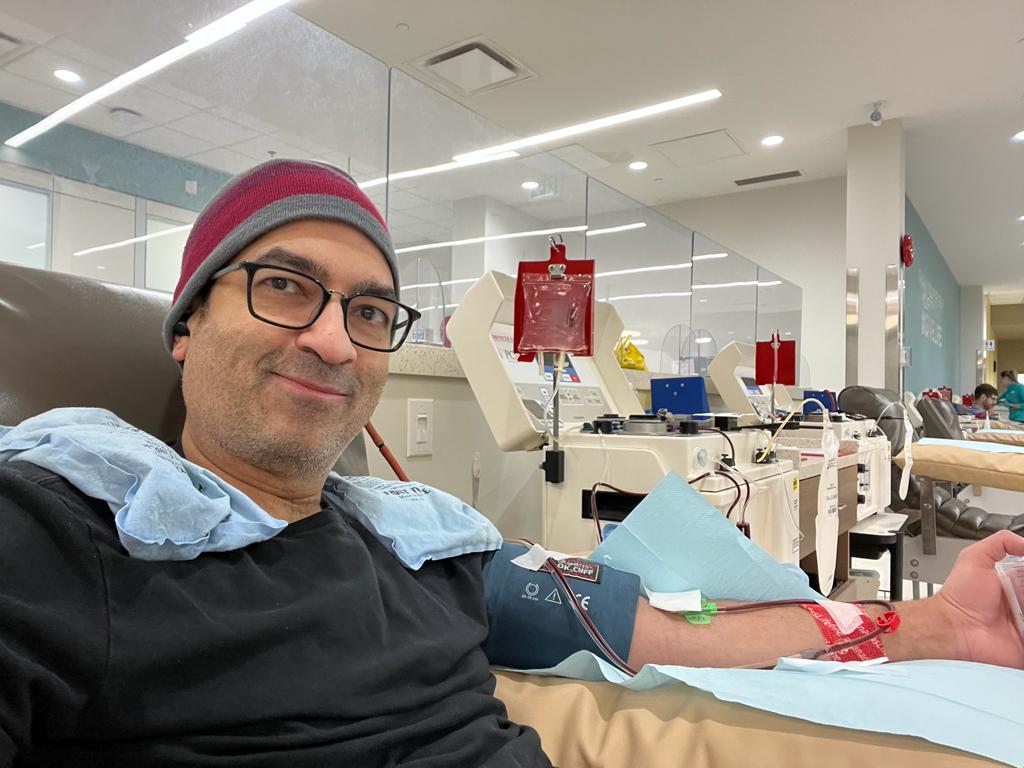Salim Amlani's journey with thalassemia began at birth, when he was diagnosed with the condition, which meant life-saving blood transfusions from the tender age of one. However, during the early 1970s in Mombasa, Kenya, the lack of blood banks posed a challenge. Salim found solace in the unwavering support of members from the Jamat. Every two months, dedicated individuals selflessly stepped forward to donate blood, ensuring that Salim received the vital transfusions crucial for his survival.
salim-amlani

Salim currently resides in Calgary, Canada with his family. He was recently awarded the Queen Elizabeth Platinum Jubilee Medal for his efforts to support the blood donation cause. Salim volunteers at Ismaili CIVIC blood donation drives and has worked with the Red Cross for blood donation. He focuses on raising awareness by talking to donors at blood donation drives and taking on speaking arrangements.
“Mawlana Hazar Imam has frequently stressed the importance of service as part of our faith,” said Salim. “Donating blood is a very important way in which you can perform this seva and its impact can be lifesaving. I personally would not be here without the generosity of thousands of donors over my lifetime and to every donor I am deeply indebted for your gift of life and for your compassion.”
munira-premji

Blood transfusions play a vital role in many surgeries and treatments for a range of medical conditions including blood disorders and cancer. Munira Premji from Toronto has an inspiring story of resilience and courage, having survived not one, but three different cancers. Before Munira’s chemotherapy even began, she was rushed to hospital as her hemoglobin levels dipped to dangerously low levels and she was at risk of multiple organ failure. Her life was saved by a timely blood transfusion.
In her memoir “Choosing Hope: 1 Woman, 3 Cancers”, Munira refers to that first transfusion as “the price of admission” since without it she would not have been alive to undergo treatment for her cancers. She has undergone multiple blood and platelet transfusions since then. Each transfusion, she recalls, “was a time of prayer, of gratitude, of hope that the blood would give me what I needed. But it always started with gratitude for the person that donated.”
Donating blood usually takes only an hour but can make an enormous difference to the recipient and may even save a life. Most healthy adults are eligible to donate blood and can do so every 56 days for males and every 84 days for females.
ronil-shivji

Plasma donation
Ronil Shivji from Calgary is passionate about giving back through blood and plasma donation. He has donated plasma over 500 times and continues to make plasma donations regularly. Ronil credits the Ismaili values of service and compassion as his motivation. He began donating whole blood in his early 30s and switched to donating plasma after realising it would help more people.
While most people only think of donating whole blood when thinking of blood donation, donating plasma (a component of blood) can play a crucial role in medical treatments for liver failure, severe infections, burns, immunodeficiencies and autoimmune disorders. Plasma can be donated more frequently than blood (around every two weeks) which makes it a very efficient way to help others and even save lives.
“If we all made it a priority to do something for others, this world would be a better place,” said Ronil. “Plasma donation is a quick and efficient way to help people. We hope that a lot more people will step up to help their communities.”







